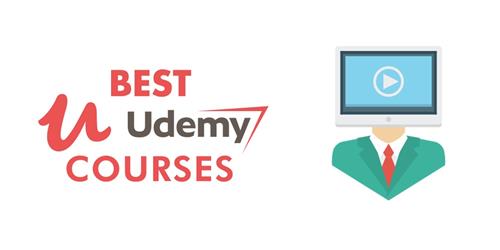
Free Download Beginner's Guide to Reading and Reviewing Welding Documents
Published 5/2024
Created by Ray Harkins, The Manufacturing Academy
MP4 | Video: h264, 1280x720 | Audio: AAC, 44.1 KHz, 2 Ch
Genre: eLearning | Language: English | Duration: 20 Lectures ( 2h 52m ) | Size: 1.3 GB
Basics of a Welding Program including Welding Procedure Specifications (WPS) and Procedure Qualifications Records (PQR)
What you'll learn:
Key components of a company's welding program
An overview of the major welding documents
Examples of welding documents
What is a Welding Procedure Specification (WPS)? And how is it used? What to look for in a WPS?
What is a Procedure Qualification Record (PQR)? And how is it used? What to look for in a PQR?
How to perform "sanity checks" on your welding documents
How to record changes to welding documents
How welding documents align with industry standards
The most COMMON MISTAKES found on welding documents
P numbers, F numbers and A numbers
A case study detailing the review of these critical documents
And MUCH MORE!!
Requirements:
Basic knowledge of manufacturing
Some knowledge of welding is helpful
Description:
In this course, "Beginner's Guide to Reading and Reviewing Welding Documents", you will learn a basic understanding of welding process documentation and culture, with particular attention paid to two critically important documents -- the Welding Procedure Specification (WPS) and the Procedure Qualifications Records (PQR).This class is designed for someone with little to no experience in welding, welding documentation, and/or quality systems. Perhaps you're an experienced welder who wants to move their career toward testing, training, and structured quality systems ... then this is the class for you. Or maybe, you're a seasoned quality professional that recently took on responsibility for welding process documentation ... this may be the class you need to grasp the long-standing, welding-specific documentation common to the industry.The WPS is essentially the recipe, the work instructions welders use to correctly complete a particular weld. Variables like base material, filler material, position, electrical parameters, and shielding gas are specified on the WPS. Engineers develop these WPS's based on industry codes, manufacturers' recommendations, and their own experience and experimentation.The PQR is used to determine that the proposed welding operation is capable of producing welds that meet the engineering requirements for the intended application. The purpose of the PQR is to establish the finished properties of a particular welding procedure. This is done by recording the results of certain mechanical properties tests on the PQR. Tests like tensile, elongation, and Charpy impact are tests commonly found on a PQR.Given the high level of detail on these documents, mistakes are common ... even for seasoned welding engineers. This is where the skill of a document auditor really pays off. By understanding the function and intent of these documents, a manufacturing, quality or engineering professional can save their company untold costs and delays.In this class, you will learn:The key components of a company's welding programAn overview of the major welding documentsWhat is a PQR? And what is their purpose?What is a WPS? And how is it used?What to look for in a Welding Procedure Specification (WPS)What to look for in a Procedure Qualification Record (PQR)How to perform "sanity checks" on your welding documentsHow to record changes to welding documentsHow welding documents align with industry standardsThe most COMMON MISTAKES found on welding documentsP numbers, F numbers and A numbersA case study detailing the review of these critical documentsAnd MUCH MORE!!By the time you're done with this class, you will have the skills to effectively review WPS's and PQR's to verify their accuracy and usefulness.In addition to the almost 3 hours of lecture video, when you enroll in this course, you also get:Numerous DOWNLOADABLE RESOURCES including blank WPS and PQR .pdf templates, completed examples of a WPS and PQR, and a glossary of welding terminology.LIFETIME ACCESS to it's contents ... all the lectures, all the downloadable resources, and anything added to the course down the road.A CERTIFICATE OF COMPLETION (upon completion of the course) indicating your name, the course's name, and the course's time duration.Q&A ACCESS through Udemy to industry leaders who can answer your questions about the course's content.With all these benefits, you can't lose. Sign up today and start gaining the skills you need to advance your career in welding quality and documentation.
Who this course is for:
Welders, Weld Inspectors
Quality managers, Quality engineers. Quality Technicians
Process engineers, Process technicians
Manufacturing managers
Homepage
https://www.udemy.com/course/beginners-guide-to-reading-and-reviewing-welding-documents/Rapidgator
ktqqw.Beginners.Guide.to.Reading.and.Reviewing.Welding.Documents.part2.rar.html
ktqqw.Beginners.Guide.to.Reading.and.Reviewing.Welding.Documents.part1.rar.html
Uploadgig
ktqqw.Beginners.Guide.to.Reading.and.Reviewing.Welding.Documents.part2.rar
ktqqw.Beginners.Guide.to.Reading.and.Reviewing.Welding.Documents.part1.rar
Fikper
ktqqw.Beginners.Guide.to.Reading.and.Reviewing.Welding.Documents.part2.rar.html
ktqqw.Beginners.Guide.to.Reading.and.Reviewing.Welding.Documents.part1.rar.html
Beginner's Guide to Reading and Reviewing Welding Documents Torrent Download , Beginner's Guide to Reading and Reviewing Welding Documents Watch Free Online , Beginner's Guide to Reading and Reviewing Welding Documents Download Online
